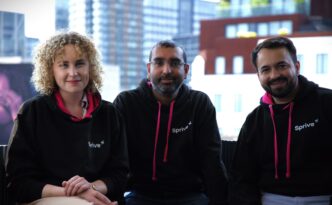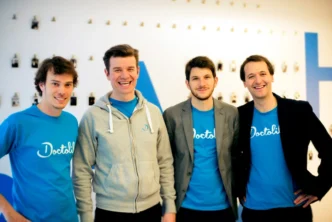Flex, a fintech startup that builds personal finance software for small business owners, has acquired Maza, a U.S.-based finance app for Spanish-speaking users, in a $40 million deal. The acquisition aims to streamline financial tools for entrepreneurs—particularly those from immigrant and underrepresented communities.
Although Flex and Maza started with different missions, their user bases eventually converged. Flex focused on offering a unified financial app for business owners. Maza, meanwhile, began by helping Spanish-speaking users open bank accounts, access debit cards, and obtain ITINs. Over time, Maza discovered that many of its users were actually solopreneurs—immigrant-run small businesses operating across landscaping, cleaning, and subcontracting.
That pivot changed everything. Maza started developing tools tailored to small business needs and scaled fast—posting a 290% year-over-year revenue growth rate in 2024. It also reached 250,000 users, catching the attention of Flex CEO Zaid Rahman.
According to both companies, the acquisition wasn’t just strategic—it was inevitable. Flex had already been building infrastructure to help individuals manage personal and business finances in one app. Maza was doing the same from a different starting point. Eventually, their paths merged.
“As both companies gravitated toward the same user—business owners with consumer needs—the lines between the two began to blur,” said Rahman. “Rather than build a parallel product, it made more sense to combine forces and scale from day zero to year ten.”
With the acquisition, Maza will be rebranded as Flex Consumer, and its co-founders—Luciano Arango, Robbie Figueroa, and Siggy Bilstein—will become executives within Flex. Arango said the decision to merge felt natural.
“We were solving opposite ends of the same problem,” Arango said. “As founders, we’ve felt the pain of fragmented financial tools. Joining forces was the logical next step.”
Maza’s ability to retain users over time also validated its shift to business finance. “What surprised us most was how durable the customer base became,” Arango noted.
Before the acquisition, Maza raised a previously undisclosed $15 million Series A round in 2024, led by Wellington. The round also included participation from high-profile investors such as Andreessen Horowitz (a16z), Tusk Venture Partners, Titanium Ventures, and even artist Anderson Paak. Former Amex Bank CEO Anré Williams also invested.
Since its launch in 2022, Maza raised $24 million in equity. Flex, also founded in 2022, secured $45 million in equity funding and $300 million in credit facilities—primarily to support its credit card business. As of March 2025, Flex was valued at $250 million. Its most recent $25 million equity round was led by Titanium Ventures.
Maza’s 22-person team has now joined Flex, with 95% of the staff integrated into the company’s existing 64-employee workforce.
The deal is part of a broader trend in fintech. According to CB Insights’ Q1 2025 report, M&A activity in the sector has accelerated. There were 184 global fintech M&A deals in Q1 2025, up from 143 in Q3 2024.
Other notable recent deals include Pipe’s acquisition of Glean.ai, and Checkr’s agreement to buy Truework—both signs that consolidation is reshaping the fintech landscape.
By joining forces, Flex and Maza aim to expand their footprint among entrepreneurs often overlooked by traditional banks. And with the integration of Maza’s tools and talent, Flex is positioning itself as a complete financial solution for the modern business owner.













